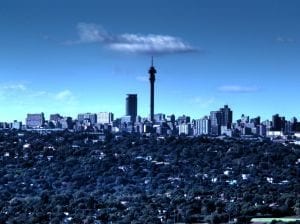The City of Johannesburg is conducting a Green Revolution to meet the challenged posed by climate change.
During his State of the Province Address, Johannesburg Mayor Parks Tau said the city would increase its efforts to combat climate change, conserve its finite resources and guarantee supply of water and energy for residents. Energy efficiency As part of the Green Revolution, City Power has installed 43 000 solar water heaters which generate 22.5 GW of electricity per hour. The ongoing installation of 42 000 smart meters, geyser control systems and energy efficiency programmes will further enhance energy efficiency. Using biogas Johannesburg is expanding its dual-fuel Metrobus fleet and will help to grow the bio crops to be used to produce fuel. Tau said the city will purchase 150 new buses using dual fuel and convert an additional 30 to run on a mixture of compressed natural gas and diesel.These buses emit 90% less carbon emissions into the environment. Tau said the biogas fuel can be sourced from a range of natural products including grass cut by City Parks, biowaste from the Fresh Produce Market and bio crops especially grown for this purpose.The city is developing Biogas-to-Energy plants at its wastewater treatment plants to mitigate climate change and reduce energy costs. In November 2013 Johannesburg commissioned the first plant at its Northern Works wastewater site and the second one at the DriefonteinWaste Water Treatment Works which will be operational by May 2014.
Reducing waste to landfill “The diversion of waste away from landfills remains a key priority for the City of Johannesburg. Some of the waste streams identified include the diversion of green waste, builders’ rubble, food waste and residual waste,” said Tau. Separation at source is currently being rolled out in Waterval, Zondi, Diepsloot, Orange Farm, Central Camp, Marlboro and Southdale. A total of 470 000 households are targeted for participation in the programme. The city’s garden sites are being upgraded to accept recyclables. In the final stages of the programme, a total of 950 000 households will be included in the programme. Builders’ rubble is a huge contributor to illegal dumping. The city is making mobile crush plants and static crushing plants available at various landfill sites to address this challenge. “The city also recognizes the role of the various stakeholders in reducing waste to landfills. We will partner with the private sector to accelerate the implementation of waste to energy projects that will move the city towards the attainment of a 70% reduction by 2030.”






